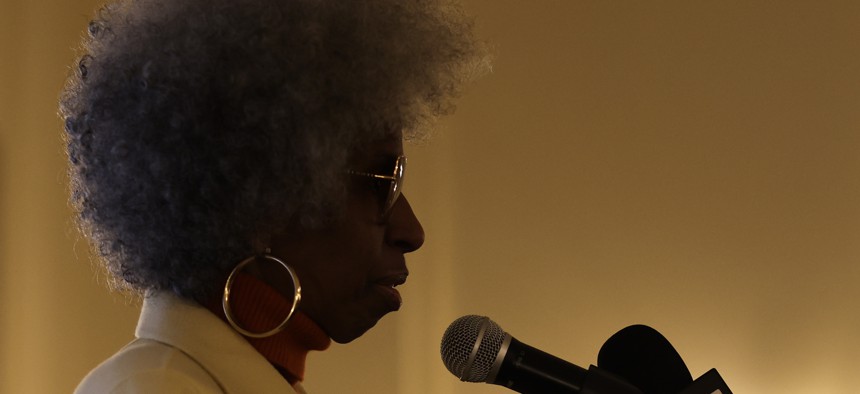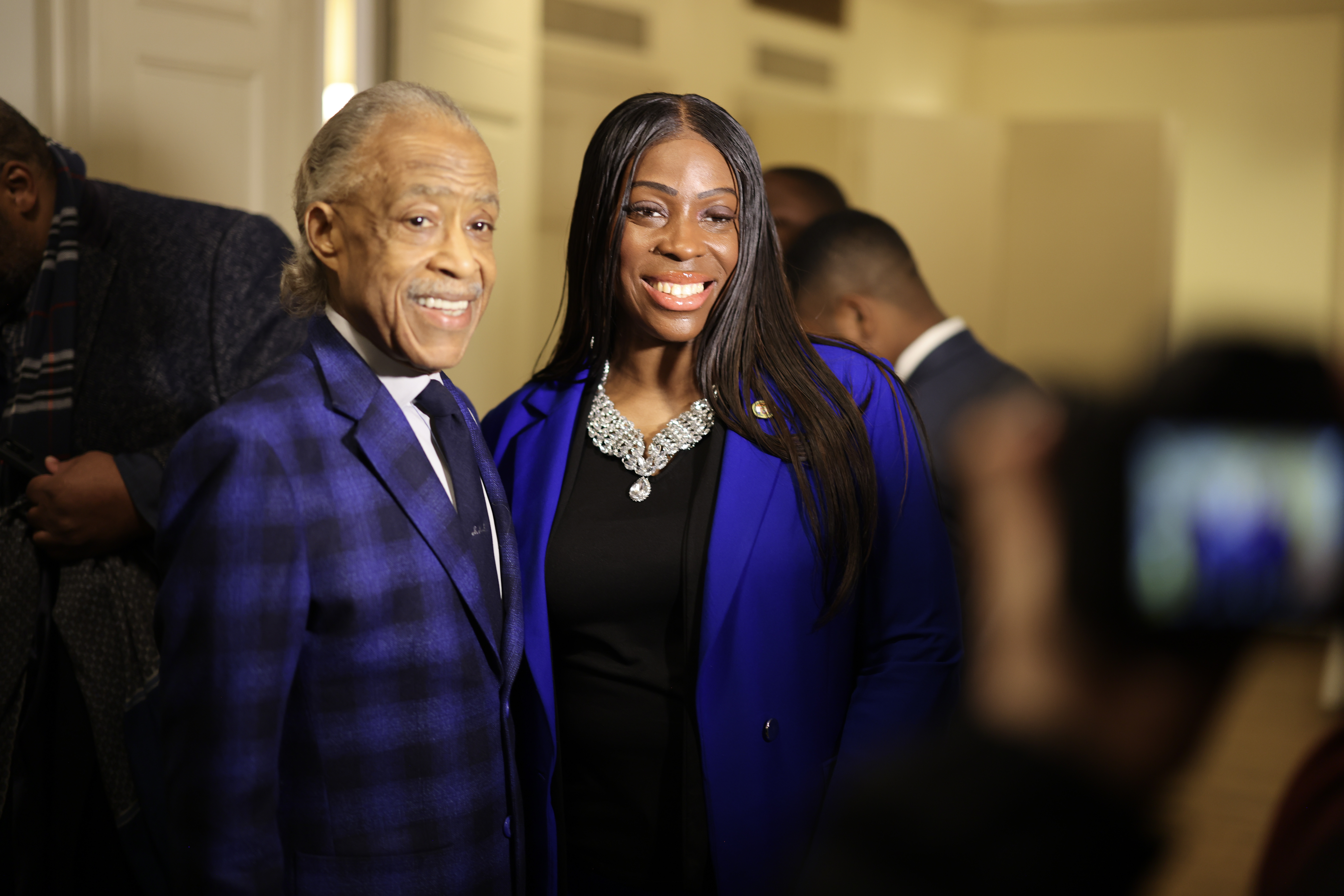New York State
City & State’s Black History Month celebration honors Al Sharpton, Vanessa Gibson and Erica Ford
The honorees gave remarks reflecting on the past and future of Black empowerment.

Erica Ford, CEO of Life Camp speaks during City & State’s Black History celebration held at the 3 West Club in Manhattan Friday Rita Thompson
What is Black History? It is to “dash,” according to Erica Ford, CEO of Life Camp Inc., and it’s what haunts the Black experience. Whether it is a dash to freedom, empowerment or visibility, she said at a Black History Month celebration hosted by City & State and Charter Communications Friday.
As this month commemorates the dearth of adversity endured by Black pioneers, Ford, civil rights advocate Rev. Al Sharpton and Bronx Borough President Vanessa Gibson were honored at the celebration held at the 3 West Club in Manhattan for their dedication to uplifting Black communities across New York.
“Don't love me after my dash. Don't tell me you support me after my dash. Black people are the bloodline of America. We are the foundation that America is built on. It is the death of our people, our ancestors that give life and oxygen to everything in America,” an emotional Ford told attendees.

As one of the city’s most staunch advocates against gun violence, with April 8th named Erica Ford Day in commemoration for her efforts towards promoting peace, Ford’s nonprofit Life Camp aims to empower youth and young adults with mentorship opportunities, access to education, employment and more.
“But we have to remember. This is our America. We were brought here as slaves and we forged a nation in America. We, as slaves, built America. We as slaves made these corporations rich. And the trauma is killing us all. Because anything and everything we have to get, to give life to our children, we have to fight for,” Ford said in her remarks at the event.
Sharpton, founder and president of the National Action Network and whose advocacy work spans more than five decades, echoed this sentiment by reminding attendees of the visible milestones achieved by Black people across New York.
“My challenge is that as we are in Black History Month, it is not enough to just talk about what happened. Let's talk about what is happening. Do you realize that we've never had these many Blacks in power before? What does it mean, if the conditions of black people are not changed in this state?” he asked the crowd at the event.
Sharpton pointed to the integral work that lay ahead, urging leaders to use their influence to make bold changes – power unprecedented to previous generations of civil rights activists:
“We have more power in New York state than Shirley Chisholm would have ever dreamed of. Adam Clayton Powell would have never had this dream. But it means nothing if 10 to 20 years from now we can’t show where Blacks advance in the metrics that matter,” stressed Sharpton.
Gibson in her remarks highlighted the endurance required for meaningful advocacy, while emphasizing key issues plaguing Black Americans.
“Our young people need to look at us and realize that they are filled with promise and potential. Sometimes I feel like the world is on my shoulders […] and sometimes we're traumatized, but we can't show weakness. Failure is not an option for our people,” the borough president said.
“We have come too far, we have endured too much to allow folks to set us back or to get us distracted,” she added. “We have to stay on course and stay focused when it comes to voting rights when it comes to health equity and education justice.”
Similar points were made by keynote speaker Arva Rice, CEO of the New York Urban League, who highlighted the current barriers that oppress Black Americans:
“Today, we gather to celebrate Black History Month, at a time when the erasure of Black History has become a stated goal of some and an unspoken wish to others,” she said, “as the Supreme Court has taken dead aim at affirmative action […] as states purge their voting roles and put barriers to the ballot box.”
Despite the increased visibility of Black leaders, Black communities remain some of the most disenfranchised in New York City, a paradox highlighted by Ford who urged communities to rally together.
“When Rev. Sharpton talks about the amount of Black people in power – the Bronx is still the poorest in the nation. We as a people can change it. A leader can do so much, but the people can do so much more,” Ford said.
Sharpton also pointed to the work of future generations of Black advocates.
“We did not march and fight to get you a big title,” he told attendees. “We thought if we got you a position, you would use those positions to help those that were not positioned at all. So my challenge to you, as I gratefully accept this award, is let us celebrate Black history by making some Black history.”
